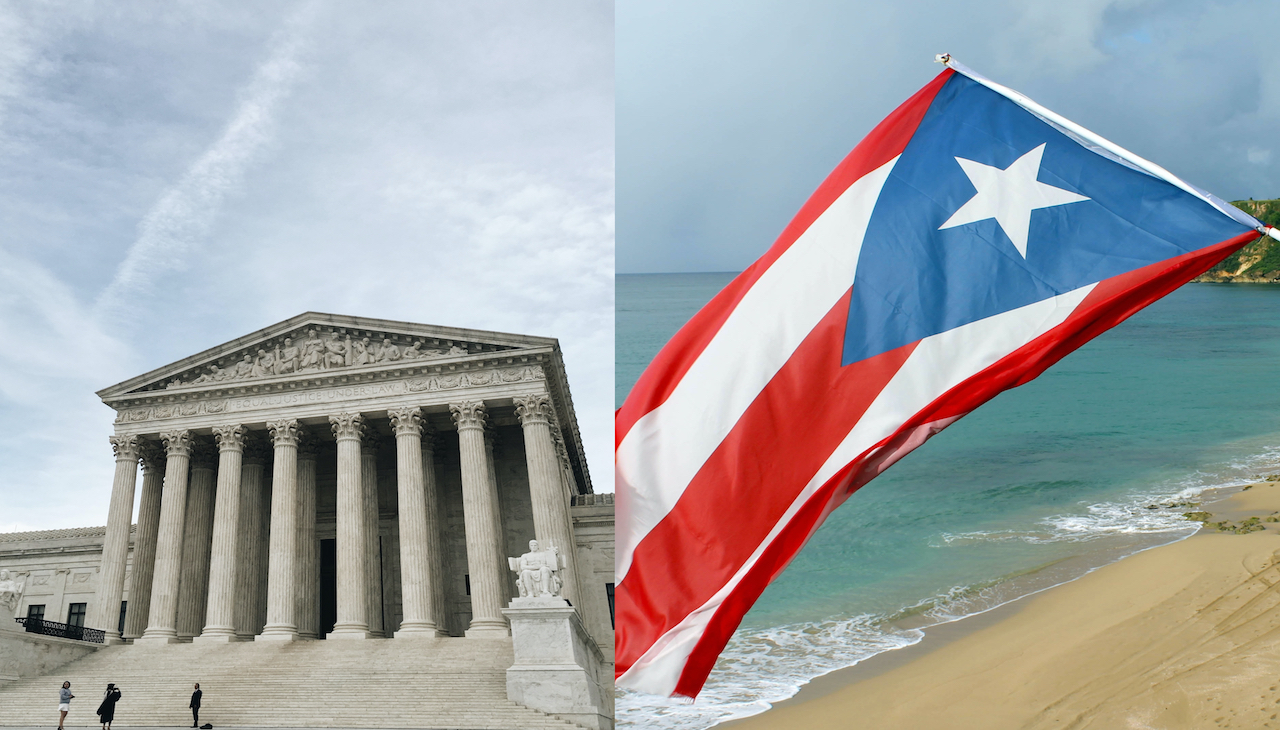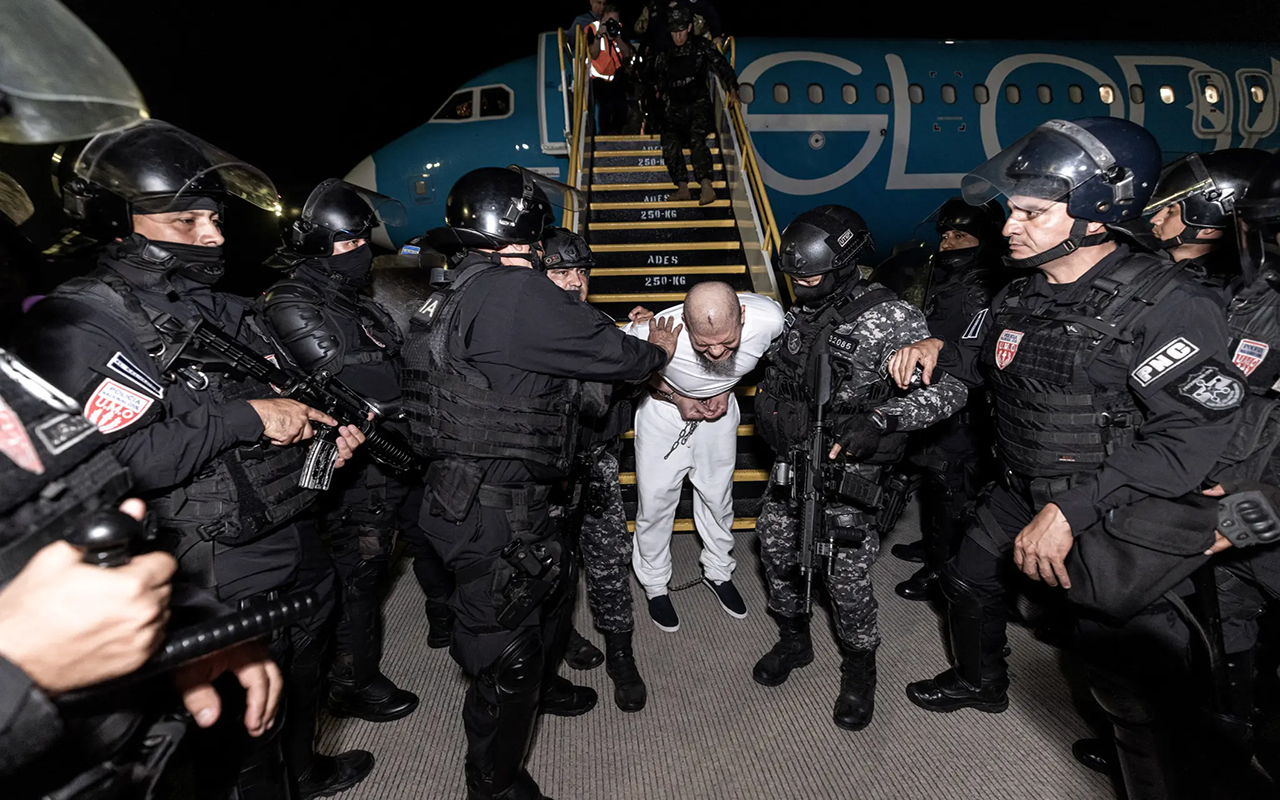
U.S. Supreme Court allows Congress to deny benefits to aging and disabled Puerto Ricans living on the island
It’s another case of the oft-forgotten Insular Cases rearing their head, as the island’s colonial status comes into focus.
On Thursday, April 21, Puerto Ricans on the island and in Congress criticized a U.S. Supreme Court ruling that found it's constitutional to deny federal benefits to aging and disabled U.S. citizens living on the island, though they can access these benefits if they relocate to the mainland.
The high court ruled that Congress can exclude residents of Puerto Rico from some federal disability benefits which are available to those who live in the states.
JUST IN: In an 8-1 decision, the Supreme Court rejected an appeal from Puerto Rico residents seeking equal access to government benefits as American citizens. https://t.co/KqbiglrUSX
— HuffPost (@HuffPost) April 21, 2022
The case revolved around Supplemental Security Income that is available to those living in the states who are older than 65, blind, or disabled. But Puerto Rican residents and residents on other U.S. territories are excluded from receiving the funds.
The case involved Joe Luis-Vaello-Madero, who was born on the island in 1954, but lived in New York from 1985 to 2013. After having a stroke in 2012, Vaello-Madero was eligible to receive the disability payments and they were directly deposited into his checking account.
But when he moved back to Puerto Rico the following year, Vaello-Madero continued accepting the payments until the U.S. government realized he was living outside of the states. He was then told his benefits would end and that he owed the government $28,081 in back pay.
Vaello-Madero’s lawyer said that the program was intended to replace “an uneven patchwork of programs” for disabled people so that they could live with dignity. But he argued that it’s not guaranteed for all Americans, as it excludes Puerto Ricans based on their race.
The 8-1 opinion was written by Justice Brett Kavanaugh.
The Supreme Court rules 8-1 that the government does not violate the equal protection clause by excluding Puerto Rico residents from Supplemental Security Income, a safety-net program for people who are blind, disabled, or at least 65. Sonia Sotomayor is the lone dissent.
— SCOTUSblog (@SCOTUSblog) April 21, 2022
“In devising tax and benefits programs, it is reasonable for Congress to take account of the general balance of benefits to and burdens on the residents of Puerto Rico. In doing so, Congress need not conduct a dollar-to-dollar comparison of how its tax and benefits programs apply in the States as compared to the Territories, either at the individual or collective level,” wrote Kavanaugh.
Kavanuagh said that while Puerto Rican residents are typically exempt from most federal income, gift, estate and excise taxes, they are eligible for Social Security and Medicare.
Justice Sonia Sotomayor, whose parents were born in Puerto Rico, wrote in the only dissenting opinion that “equal treatment of citizens should not be left to the vagaries of the political process.”
Sotomayor added that because Puerto Rican residents don’t have voting representation in Congress, they can’t depend on their representatives to alleviate the disparities suffered by citizen residents of Puerto Rico under “Congress’ unequal treatment.”
RELATED CONTENT
The Biden Administration defended the decision, saying that most Puerto Ricans are exempt from federal taxes, so Congress could take that reduced contribution into consideration when excluding them from some disability benefits.
Sotomayor was deeply critical of this argument, and called the majority’s decision “irrational.”
NEWS: The Supreme Court is allowing Congress to exclude residents of Puerto Rico from social safety net programs.
— Demand Justice (@WeDemandJustice) April 21, 2022
Justice Sotomayor dissents, calling the holding: "irrational and antithetical to ... the equal protection of citizens guaranteed by the Constitution."
“There is no rational basis for Congress to treat needy citizens living anywhere in the United States so differently from others,” she said, and noted that the Government Accountability Office estimates that over 300,000 Puerto Rico residents would have qualified for the benefit.
Sotomayor argued that even though islanders are typically exempt from paying some federal taxes, that doesn’t create a rational basis to distinguish Puerto Rican residents from others in the case at hand.
She also warned that this decision could have “dramatic repercussions,” because if Congress can exclude citizens from safety net programs due to insufficient tax pay, they could easily target residents in states that pay less into the Federal Treasury than other states.
Puerto Ricans do pay federal payroll taxes and help fund Medicare and Social Security, contributing more than $4 billion annually in federal taxes to the U.S.
Puerto Rico Gov. Pedro Pierluisi slammed the Supreme Court’s ruling in a statement in Spanish, saying that it further stressed that the “territorial status of Puerto Rico is discriminatory for American citizens on the island” as it “allows Congress to do whatever they want with us.”
"Clearly our people, particularly the most vulnerable, suffer the consequences of this unequal treatment," Pierluisi said.










LEAVE A COMMENT: